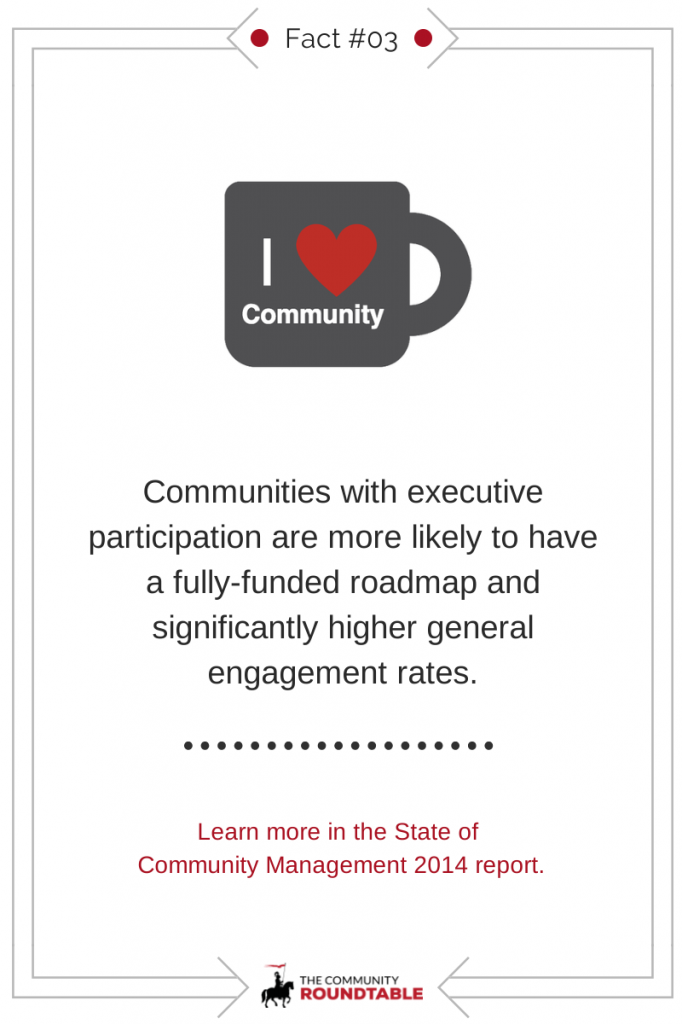By Rachel Happe, Co-Founder of The Community Roundtable.
The discipline of community management is growing up. For us at The Community Roundtable it’s easy to see as the conversations have shifted from how we best execute on day-to-day community challenges to how do we transfer that knowledge and how do we integrate community processes into core business processes. But it’s also changing the role of the community manager – we see responsibilities of members of TheCR Network shifting to include more:
- Internal consulting
- Training/coaching
- Building governance for other community managers
- Program management
From my perspective this is a great thing – it means community management is extending to everyone in an organization and becoming they new approach to management. But it is also disruptive, because not all community managers understand this shift and many don’t (yet) have the skills to execute effectively on these new responsibilities. Add to this, for community managers who have been in the role for a while, they likely got started in a context where there were no formal resources or services available to them and they had to figure everything out on their own. They experience a tension between wanting to grow in the field and get more authority within their organization and still preferring to do everything themselves.
This struggle between wanting to do everything yourself and needing to scale is not uncommon – most people experience this in some form or another as they gain responsibility within their field. In order to become a director or VP, it is an absolute necessity to stop doing everything and start assembling a team of resources, both internal and external, to which you can delegate the doing. Once you do that, your responsibility is to help create a shared sense of purpose, the operations to support your point of view consistently and to mentor those who are on the front lines. Practically, that means you need:
- Documented standards and playbooks
- Training/Onboarding solutions that frame the challenge
- A common way to assess and track performance, at various levels
- Common tools and resources available to your whole team
- External resources that have more cost-effective expertise or scale, to complement internal resources
In many ways, these new responsibilities fundamentally shift the day-to-day work of community management as it becomes more about assembling the right resources, managing budgets and hiring than planning community programs or moderating discussions. Not everyone wants to or needs to make the leap but it is helpful to understand the trade-off; if you want strategic authority and responsibility, you need to learn executive skills.
The other challenge for community managers who do make the transition to senior roles have is a hesitation to ask for and spend money – they are so used to operating in a context of scarcity that they assume they have to do everything themselves. We see this all the time with TheCR Network membership fees – when we talk to executives, membership for their community team is an easy and obvious yes but community managers themselves often assume they don’t have budget before they even ask.
Times have changed – community programs are now much more strategic, we have data and case studies that demonstrate community effectiveness and the role of community management is much more well understood. However, community managers still often fail to recognize that:
- If you have built a reasonable and itemized roadmap that is tied to business outcomes, you are likely get at least some of what you ask for but do not limit your asking to your direct supervisor – you may need to go up a couple of levels.
- You cannot scale without spending money and it’s not about the money per se, it’s about scaling your impact. If you do not build a roadmap, ask for budget and bring on resources that help you extend your reach, you will hamper your ability to grow your community program and its impact. If the community is effective, that harms the organization as a whole.
Growing up is a bumpy process and different people like different stages of maturity better than others. It’s worth really thinking about which part of the process and work you love – and seeking out opportunities that are weighted toward those responsibilities. The tide of community management is rising and bringing all of us along with it – enjoy the ride!
—-
Looking to take your career in community management to the next level? 92% of members agree that TheCR Network supports and advances their personal and professional goals. Learn how our research, access to peers and experts, targeted content and exclusive concierge service can help you achieve your goals.


